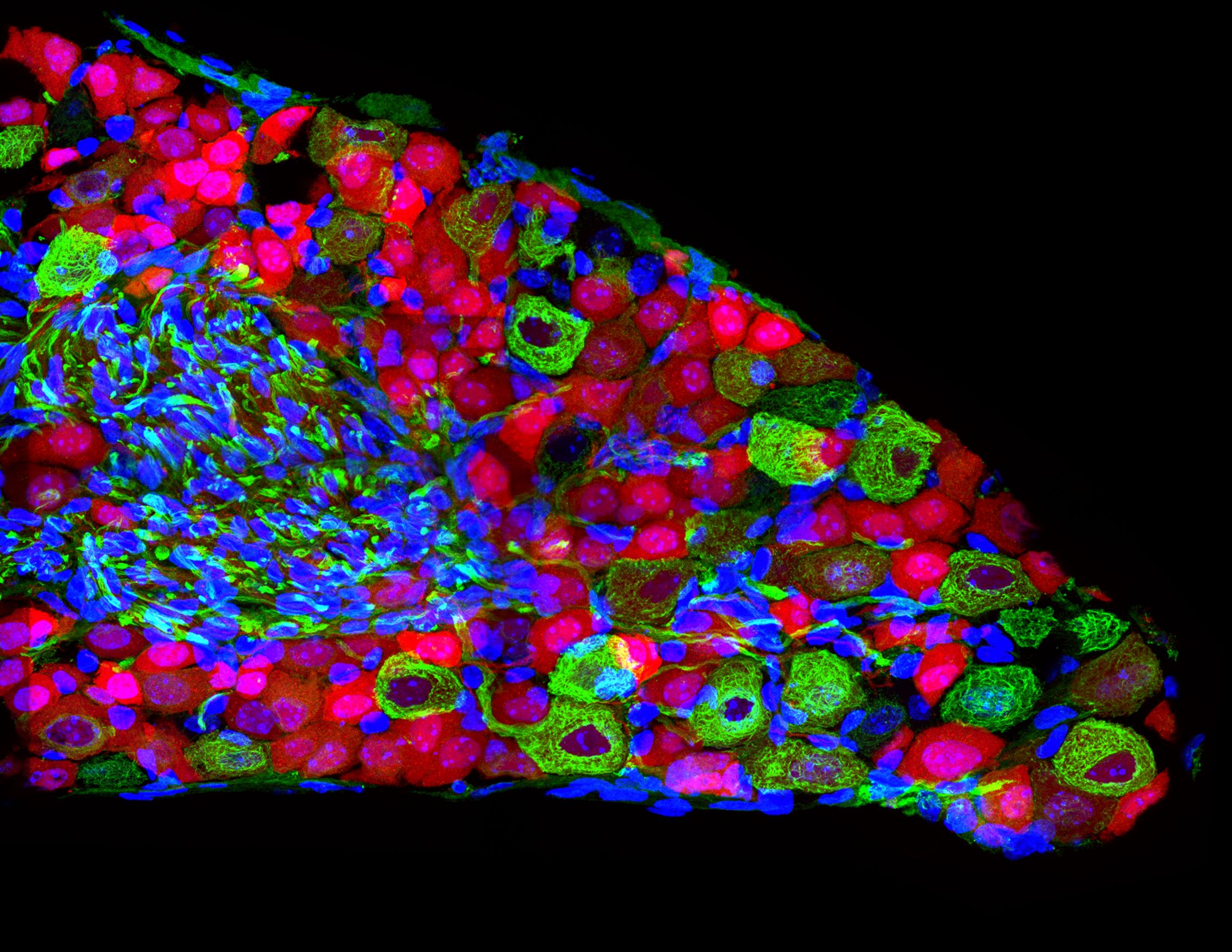The Lowy Medical Research Institute is working to identifying the gene, or genes, that lead to the development of macular telangiectasia type 2. The search for a “MacTel gene” began as part of the MacTel Project, and is still ongoing. The genetics study continues to evolve with advances in sequencing technology, and with the inclusion of new patients and families.
More than 1300 people have donated blood for MacTel genetics studies. LMRI has sequenced for single nucleotide polymorphisms in many of these participants’ blood samples. This sequencing technique identifies variations in individual base pairs in a person’s DNA. This data is being used in genome-wide association studies (GWAS). The GWAS identifies common genetic variants that are associated with MacTel. It compares data from people who have MacTel to those who do not. The first results of this research have been published, and more work continues to be done.
LMRI also studies families with MacTel. Families in which several members are affected by the same disease are an important resource for genetics studies. LMRI has done whole exome sequencing (WES) on individuals from families with MacTel. Whole exome sequencing results in a list of a person’s genes, and the variants they carry. LMRI-affiliated scientists identified rare variants that are shared between family members. These genes are being examined for their potential role in disease. LMRI has also undertaken a large whole exome sequencing project among unrelated individuals to identify variants associated with MacTel type 2.
As the cost of whole genome sequencing has gone down, LMRI has also invested resources in sequencing the entire genome of selected individuals with MacTel. Whole genome sequencing yields much more information than either of the other sequencing approaches described. It includes all of a person’s DNA, not just gene-coding regions or selected base pairs. Intergenic regions can have important regulatory functions. LMRI-affiliated scientists are beginning to explore those in the context of MacTel.
LMRI’s genetics data is a tremendous resource for MacTel research. Our genetics group uses every appropriate tool available to identify the genetic basis of disease.




